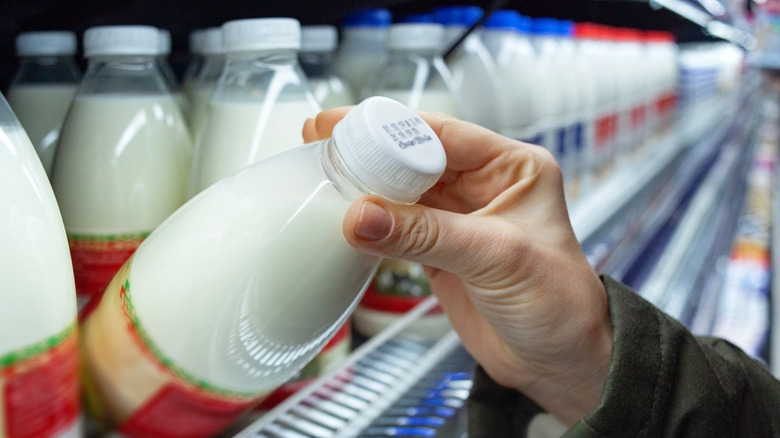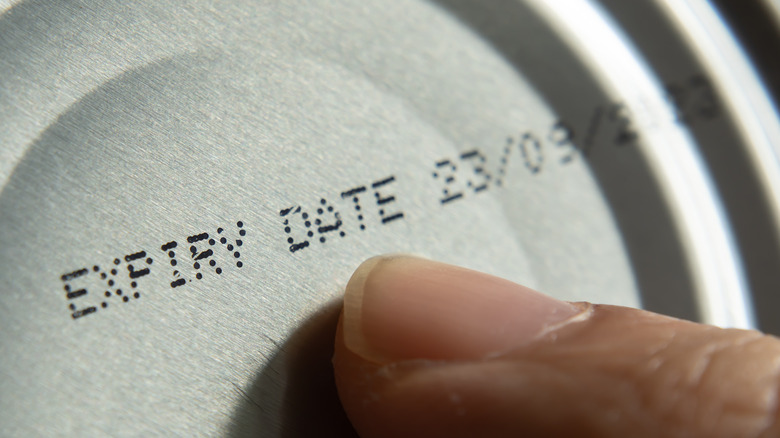A New Government Bill Hopes To End Confusion Over Food Expiration Dates
Although words have meaning, their interpretation can lead to confusion. Statements like "sell by," "best by," and "use by" can have people wondering if food is safe, risky, or ready to be tossed in the bin. Looking to make such language clearer, the bipartisan Food Date Labeling Act has once again been brought forth to Congress (via Food Safety News). The proposed legislation seeks to standardize labels on food products, which can hopefully reduce food waste.
Congresswoman Chellie Pingree, one of the bill's architects, previously explained that "90% of Americans prematurely throw out perfectly safe food." Seeking to dispel expiration-date myths that are "outdated, confusing, and completely arbitrary," as Pingree put it, the bill proposes a two-category system. First, "BEST If Used By" refers to the quality of a product potentially worsening after a particular date, while "USE By" refers to the point at which that item becomes no longer safe to consume.
It's the difference between possible lack of enjoyment and potentially harmful ingestion. Put more simply, "BEST If Used By" might refer to bread being stale, which is less tasty, while "USE By" could refer to moldy bread, which could make people sick when eaten. Currently, the only federally regulated food dates appear on baby formula. Companies can choose to voluntarily place quality-based date labels on other items, as long as they are not false or misleading. If this bill passes, consumers will be able to focus more on making the most of their food rather than fretting over confusing terminology.
Food companies support the Food Date Labeling Act
Several food companies and organizations have vocalized their support for this legislation in recent years. For example, Unilever North America, specifically its Hellmann's mayonnaise brand, seeks to reduce food waste and believes that a federally codified approach would handily replace the jumbled state-guidance method we have now. Harvard Law School Food Law and Policy Clinic has also claimed this clarified approach would be beneficial, not only for customers, but also for companies. By making the concept clearer to shoppers and more straightforward to apply for businesses, the overall impact could prove financially beneficial in addition to being a food-waste reducer.
"BEST If Used By" and "USE By" would help guide the consumer's judgment. An analogy could be made to the imperfect produce market. A banana with a slight bruise might not be visually perfect, but it is still edible. However, a banana that is totally black or smells rancid should not be eaten. Even without a stamp, the consumer can tell the difference. Ideally, all food should be that way, and clearer labels can help.
When consumers easily appreciate the differences, terminology and food safety can become second-nature. If customers have a clearer understanding of standardized food labels, then safe-to-eat items in the back of the pantry might see the light of day, not the bottom of the rubbish bin.

